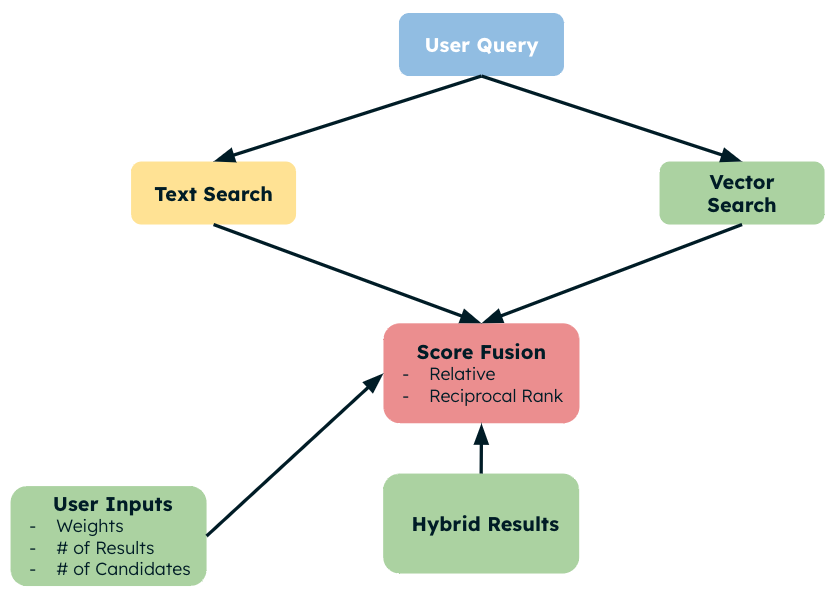📘 Introduction to Hybrid Search
What is Hybrid Search?
Hybrid search is an advanced information retrieval technique that combines multiple search methodologies to provide more accurate and relevant results. In the context of our library management system, we'll be focusing on a hybrid approach that merges two powerful search paradigms:

- Vector Search: Also known as semantic search, this method uses mathematical representations (vectors) of text to find similarities based on meaning rather than exact word matches.
- Full-Text Search: This traditional method looks for exact or close matches of words and phrases within text fields.
Why Use Hybrid Search?
Hybrid search offers several advantages over using either vector or full-text search alone:
- Improved Accuracy: By combining semantic understanding with keyword matching, hybrid search can capture both conceptual similarity and specific term relevance.
- Better Handling of Complex Queries: It can effectively process queries that might be ambiguous or require understanding of context.
- Enhanced User Experience: Users can find relevant results even when they don't know the exact terms to search for.
- Balancing Precision and Recall: Hybrid search helps in finding a good balance between returning highly specific results and a broader range of relevant items.
Hybrid Search in Our Library Management System
In our library application, hybrid search will allow us to:
- Find books based on their cover images.
- Match books by title, author, synopsis or other metadata fields.
- Combine these approaches to rank results in a way that considers both content similarity and metadata relevance.
For example, a search for "space exploration" could return:
- Books with covers that constains stars, planets, satellites etc.
- Books directly about space exploration (matched by title or synopsis)
- Science fiction novels set in space (matched semantically)
- Biographies of astronauts (matched by related concepts)